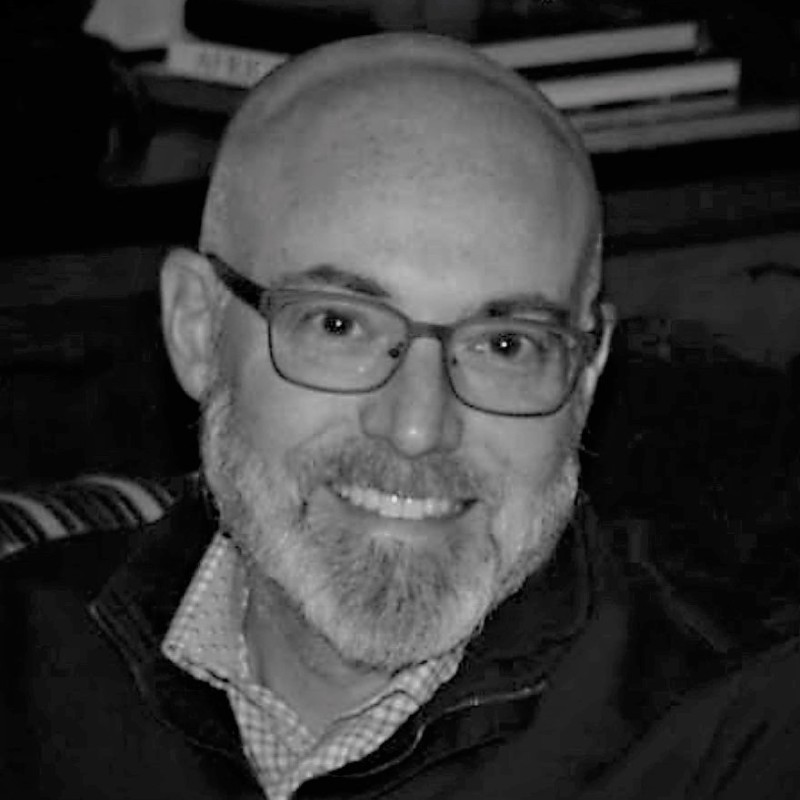Happiness is never achieved by applying forceful programs or through therapeutic interventions, genuine happiness is the result of feeling that you accomplished something.
But with our newly born motivation to create different schemes, new models, we unwittingly downsized the meaning of work.
Tracking happiness being one such method, Frank Furedi will introduce us to several other ways to making sure your employees are happy and feeling contented.
What we learned from this episode
Instead of leaving work to the side and seeking solutions according to a therapeutic model, do the work that makes us potentially creative, that strengthens us, that can enhance our day-to-day life and personalities itself.
Work has an amazing potential for transforming our personalities. It’s got a very unique and creative dimension, it’s not right to seek solutions for our personal problems out of it.
What you can do right now
We need to make sure that the environment we work is secure and that it’s okay to showcase your vulnerabilities with people in that environment.
Create a healthy, secure, lively and dynamic workplace.
Let “esprit de corps” be the way to go for employees at workplace. The more people are able to forgive mistakes, they’re more able to deal with difficult challenges together.
Key Quotes
“I think the concept of taking things for granted or what tacit assumptions are really crucial because if you are working in an environment where you don’t have to explain yourself to everybody all the time and where others don’t have to explain themselves to you and where things are just taking for granted in the way you work, it becomes a much more relaxed environment and that contributes to what I said is existential security.”
Today, our guest is Frank Furedi. He’s a sociologist, consultant, and author, and we’re talking about Work Minus Tracking Happiness. How are you today, Frank?
Pretty good. And yourself?
Excellent. Very excited to talk with you, Frank Furedi. We got in touch because I was really interested by some of the work you did on distractions. We talked about productivity in some previous episodes and we wrote a big article about it. But I loved your work and you described as a sociologist. So, why don’t you start off saying why should business people start learning and reading and listening to sociologists?
Well, I think that most businesses throughout the Anglo-American world are very much influenced by very powerful social influencers which shaped the way that employees conduct their affairs. So, when I talk to business people, they always seem to tell the same story, the same story whether they are in France or England or Canada. You always make a point about how they have a lot of difficulty in retaining the loyalty of their employees. They’re really concerned with very high levels of turnover amongst their staff. You talk about the fact that there seems to be a relative lack of commitment on the part of a lot of their employees, that a lot of employees no sooner do they join a company before they begin to look around and it’s almost as if there’s an imperative for them to move on as soon as possible. There’s a distraction there which is the distraction of your CV, you continue looking for other opportunities and never getting into your work. And most important of all and I think this is why a lot of businesses are looking for what I think are artificial or therapeutic ways of dealing with the problem, most important of all I think one of the characteristic features of the business world is the options of what I would call, for lack of a better phrase, absence of esprit de corps which means the absence of a sense of belonging together and identifying with a workplace, team spirit that is genuine and inorganic to the company and isn’t just simply an afterthought in the way that it’s often seen and promoted by businesses.
And this is very important because as we know from experience and sociologists know, an esprit de corps where people identify and work toward the same purpose, it allows the individual employees to be able to deal with stress, with challenges and obstacles. And people who have that kind of sense of belonging and identification are unlikely to say, “Well, I’m too tired. I’ve got to not finish work.” They are likely to complain about the fact that the workplace is too stressful or that they’re emotionally burnt out. They’re much more likely to be able to take risks. They are much more prepared to discredit themselves and see problems and the certainty to the workplace, not in negative terms but as opportunities. And it seems to me that one of the things that we learn from the way that society works, particularly on the current generation of employees, particularly the ones that are coming, one of the important things that we learn is really the way their attitudes towards work and the way they identify with businesses as they are disproportionately significant impact on the internal life or what happens in a company.
So, sociologists have a little bit more of their finger on the pulse of what’s going on, at least what has happened, to be able to identify a lot of those dynamics that are going around. One thing we’re talking about today is about happiness which resonates a little bit with what you’re talking about anyway, about the team spirit aspect that needs to be there. So, stepping back from the culture, the society angle, why do you think our culture is so obsessed with being happy and has that changed over the last 20 years?
I think it began about 25, 30 years ago where we began to redefine what I would call the problem of existence in a very emotional and even in medical terms and where increasingly what we’re worried about is that people were finding it difficult to engage with uncertainty. They were regarding the risk of everyday lives in negative terms. I think one of the response to this, and it’s something that begins in schooling already, particularly in the United States where there’s the continuous obsession with the self esteem of children and the need to validate them. What began to occur is that the way we began to respond to these, what I see as existential problems, is by finding therapeutic solutions and these therapeutic solutions could be forms of therapy, like mindfulness, sometimes it could acquire a different form, like building teams together through meditation or going off somewhere hoping that you can bond just because you’re spending the weekend together. One of the things that is a constant is somehow there seems to be this conviction that somehow, through either procedural or human resources or psychological means, you can make people feel happier. You can do stuff that is going to increase their happiness, their satisfaction, and therefore, via implication, their commitment to the company. That’s really the basic that’s driving this.
I think that’s the equation that we’re looking at right now, employers feel like, “Hey, we want people to stay longer and to be more productive, therefore, they need to be happier. So, let’s track it. Let’s put some data behind it and let’s implement programs to make them happier.” So, where is the fault in some of that thinking? What are some ways that that’s the wrong way to look at the issue?
Well, I think the happiness model assumes first of all that we know what happiness is and we know that every individual feels happy in a different way than somebody else, and most of us find happiness a very elusive ideal and that, in many respects, happiness is something that comes about not through programs, not through therapeutic intervention, but genuine happiness usually comes about… it’s the indirect or the side consequence of feeling that you accomplished something, that you like your work, that you created something that you’re proud of. And it’s not something that can be ingested through providing people with some kind of emotional support. It’s something that comes through a real physical act of activity and it’s something that usually comes about through work. And one of the things that I worry about is that in the very attempt to create these new schemes, these new models, you unwittingly downsized the meaning work, you basically reinforced the assumption that somehow working in a company has got all these negative side effects. In a sense, what you really are doing in effect, is you slightly begin to disease work. You associate work with negative attributes that cause you burn out, that cause you stress, that makes you feel depressed, that somehow disorients you because of the fact that you’re having to deal with uncertainty and with fluid situations.
So, instead of seeing work as something that’s potentially quite creative, that strengthens us, potentially strengthens us, and can enhance your personality and the quality of your day to day existence, we leave work to the side and instead seek solutions according to a therapeutic model. And the unfortunate thing is that therapeutic models have a very consistent habit of creating the demand for even more therapy because feeling well or wellness is not something that is static. You cannot simply say, well, okay, I’ve taken my happiness pill and I feel well and happy and that’s going to be my state for the next year or two years. No sooner have you gone through a therapeutic program before you become aware of the fact that something is still missing in your life and therefore maybe there might be a better therapeutic program that you can follow that will do the job. And I often see these programs as creating situations where therapy or the search for therapy becomes this life long quest, you’re looking for the next one that’s going to be even more effective and do the business.
So, Frank Furedi, when you look back into history, do you feel before there was this big push towards employee happiness, employee engagement, making sure everyone’s feeling good, and providing all these additional programs. Have we actually made any progress in terms of people actually being more happy in the workplace or is it pretty much just a little bit of a wasted effort?
Well, I think it’s more than wasted. I think it’s a real distraction because what we now have is this performance of care and this performance of being well and we created these rituals of behavior which, as it happens, they are often very external to what we’re doing, and often, very much unconnected to the work that we are meant to be doing. And in fact, often, under our capacity to work effectively, and most important of all, to really on occasion, not always, enjoy our work. You have to remember that work itself has a potential for transforming our personalities. It’s got a very creative dimension and a very easily overlook if you’re looking for solutions to our personal problems in an entirely different domain.
So, just to give you one example, before this obsession with happiness kicked in, you already had what I see as the pathologization of stress, where stress, all of a sudden, is turned into a medical problem. Now, I’m really old enough to remember when stress was not seen as necessarily an issue that you needed to worry about. And in fact, when I was young, we often used the word stress in a positive way. “I’m really stressed, man. It’s really good. I feel I’m going to really do good.” And very often when you were performing as a musician, you were performing as a public speaker, you were performing at work, the stress that you felt was seen as this extra source of energy that allowed you to go way beyond where you were beforehand. So, it had a positive association.
And at a certain point, what was either seen as being neutral or positive and sometimes negative became entirely framed through a very negative narrative and that’s really what’s occurring at work. And of course, once work stress is seen as a medical problem then it’s very difficult to escape from its consequences which is the simple fact that any work that is real work isn’t just simply pretending to be working is inherently stressful. It’s very seldom the case that you’re just sitting around looking at your shoes or looking at your nails and feeling very relaxed. Work stretches us. It makes demands upon our personality. And therefore, the process that’s inherit to work, that is not seen in a very medical fashion then I think it distracts people from getting on with their work and it makes them feel almost as if they are patients rather than employees.
So, what’s a better way to look at this issue? If you’re talking to someone who’s leading a large team, they care about the health of their employees, their team members that are there, they want them to enjoy work, they want them to do their best in it. What’s a better way than trying to track happiness ratings and numbers that are there? What’s a better perspective?
Well, what I would suggest that needs to be done is to, of course, make sure that the environment within which we work is secure as much as possible, that the environment provides people with the opportunity to lead a healthy life. We don’t want to create a difficult terrain in the workplace which is akin to a battlefield. So, the more we can create a healthy and secure and lively dynamic, the better. The way you deal with the problems that we’re discussing, the way you make people feel good about the company that they work with, the way you get people to identify with their work, and the way you get people to feel that in some shape or form they’re actually in control in some extent. You can’t always be totally in control, but at least control to some extent over their workplace experience is to create an environment where people know what this company is really all about. People are aware of what is expected of everybody who works in that place and what are the values and the commitments that shape that kind of an organization, what makes this particular company special.
If I was leading a team, I would really focus on this particular dimension because good leadership, and by good leaders I don’t mean managers because you can have good managers who are not necessarily good leaders. Good leadership is really about bringing people on, people that you’re working with in relation to the philosophy that you want them to embrace in their workplace. That means a philosophy to which you can spell out what is distinct about your team, what is distinct about the demands that are placed upon your team in order to create what I think is a powerful sense of belonging to what sometimes can be a very unique experience and I think the more you can cultivate that kind of commitment to what I said earlier the esprit de corps, this is what makes us who we are, the more people are able to forgive mistakes, they’re more able to deal with difficult challenges that can spring out of nowhere. And I think it’s that which is the real challenge that managers and leaders are continually confronted with.
I like how you started off using the word secure. It’s not really the word I was expecting to hear but you said the environment needs to be secure from a sense of people feeling like they know what’s expected of them, they’re not guessing at what people around them are thinking about them or what they’re supposed to be doing, what their job is supposed to do. They know that if they use the talents that they’ve been given and accomplish the goals that it’s going to be a secure place. What are some other ways that people can create a secure environment?
Well, security comes about… existential security comes about through, first of all, through understanding that you can trust one another. I think trust relations are absolutely essential. And trust relations are built on the fact that there are many things in the workplace that you can take for granted. You can take for granted that these are the particular processes that define your particular work. You can take for granted that you’re allowed a certain amount of leeway in how you accomplish the tasks that are set to you. And you can take for granted the fact that, now and again, mistakes that you may make are tolerated, and not only tolerated, but become a focus for creative discussion.
From a sociological point of view, I always envisioned security as a terrain where you can take for granted as much as possible. I think the concept of taking things for granted or what tacit assumptions are really crucial because if you are working in an environment where you don’t have to explain yourself to everybody all the time and where others don’t have to explain themselves to you and where things are just taking for granted in the way you work, it becomes a much more relaxed environment and that contributes to what I said is existential security. And the beauty of that kind of environment is that when you feel relatively secure that most dimensions of your work are ones that you can pretty much take for granted. You don’t need to invent them again. The more you’re able to deal with insecurity, I think there’s an interesting dynamic, a relationship, between security, existential security, and the fact, of course, that even in the most secure environment, you are confronted with uncertainties periodically, and therefore, to be able to deal with uncertainty in the most creative and effective way possible, it helps if you start it from a secure foundation that you’ve cultivated and built up with the people that you’re working with.
Frank Furedi, there’s always a danger somebody hears this and they say, “Okay, okay. Maybe I shouldn’t be tracking happiness and wellness like I am. I should be tracking belonging. I should be tracking security.” Are these things something you can really put a number to in some way or you can look at conditions or symptoms that show that you have a secure workforce? Or is it really just completely intangible, it has to be more of a human element to judge how things are going?
Well, certain things are intangible and there is some kind of dimensions of work experience that a good leader picks up on. A good leader learns through experience to pick up signals from the workforce. So, there are many intangible things that are rendered tangible in the course of exercising proper leadership. But then there are also things that you can put numbers to, that you can quantify. So, for example, we know that the turnover of workers is a very clear sign or a good indicator of what is happening in the workplace because people who have commitment to the job, who have commitment to the workplace are often very reluctant to move on and only move on under very specific circumstances. We know, for example, that reporting various incidents of harassment and bullying or using various procedures can often indicate that in the important informal relationships that are necessary for security. Whenever people resort to solutions provided by human resources that always indicates that the informality that is so precious in the workplace is not really working alright and I think that’s another good indicator. I think sickness and levels of sickness are very, very important. I think in different businesses it’s possible to identify a number of other indices that one can use to give what I see as being a fairly clear picture of the state of moral within a workplace.
Those are very interesting ideas to think about how they can impact the work environment. Well, Frank Furedi, it’s been great talking with you to learn more about how business and sociology can come together with that. Where should people go to continue to follow you and see more of your writings?
Well, I’ve got a website which is www.frankfuredi.com. And if you look at Amazon, I’ve written over 20, 21 books that deal with certain aspects of these kinds of issues. And in particular, I recommend a book I wrote some time ago called “Therapy Culture” which deals with some of the attempts to find therapeutic solutions to the problem.
Your most recent one is on fear, correct?
Yeah. My most recent book is called “How Fear Works: The Culture of Fear in The 21st Century.” And I think that has got some very interesting implications for the workplace to understand particularly that the problem that we all deal with and particularly leaders of business deal with which is how we deal with the future in a world where we’re finding it more and more difficult to manage uncertainty.
Excellent resources. We hope to circle back to you again Frank Furedi sometime and get another episode out of you to see what’s changing in the business environment. But until then thanks a lot, Frank, for your time and we appreciate your insights.
Thanks very much. All the best. Bye bye.
Frank Furedi is emeritus professor of sociology at the University of Kent, United Kingdom. He is well known for his work on sociology of fear, education, therapy culture, paranoid parenting and sociology of knowledge.












